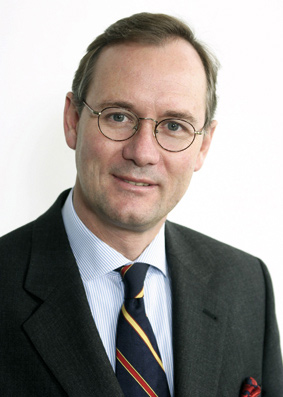PRIVATE EQUITY
Argantis GmbH
Can capital be smart or clever? Yes, when it comes with the right skills attached. Fritz Graf von Schulenburg, Managing Director of Argantis, says, “Our strategy is to invest a majority stake in well-established, cashflow positive, mid-market companies. My experience has shown that although many such companies are performing well, there is always some potential to add value. For instance, we can not only do this in areas such as management and organisation, but also through add-on opportunities, improving operations, cross-selling or by optimising their financial structure. It would, however, be wrong to believe that a private equity investor who understands these value measurements can also implement them. In addition to the right background and experience, one of the main factors that define the success of such ventures is the ‘chemistry’ between the investors and the managers of the investee company. This is especially important in Germany where mid-market companies are mostly entrepreneur-driven or owner-led businesses in family ownership. When the owner decides to divest, the decision is difficult because it is connected to emotional factors such as tradition, responsibility towards employees and the community, etc. To succeed in private equity in Germany, therefore, the investor needs to understand the human aspects of the transaction. This implies not only for entry but for running the company as well.”
 |
“The know-how we offer for improving operations and optimising financial structures helps our portfolio companies to grow.” —Fritz Graf von Schulenburg
|
“For instance,” he adds further, “it is extremely important that you stick to what you promised and do not change direction once you are a shareholder. You also need to put the development and the strategy of the company as your main focus and maintain a good relationship with the community and the former owners.”
Targeting mid-size family-owned companies and corporate spin-offs in Germany, Austria and Switzerland, an excellent example of Argantis’s investment style was visible when it bought Czewo. The company specialises in filling atomisers (spray cans and bottles) for aerosols and liquids for many of the leading brands of cosmetics, consumer-household and technical products.
“We acquired Czewo in June 2005,” says Schulenburg. “It was a family-owned business with a turnover of about 125 million euro per year. The company’s founder, Joachim Czech, developed the business, over a period of 40 years, and brought it to its present market position. He has five sons and, as is typically the case with family-owned companies, he could have passed the control to one or more of his sons. Instead he decided in favour of Argantis, as we are both focused on the long-term success of the business. After we acquired the company, we asked him to become the chairman of the supervisory board. In this capacity Czewo has access to his experience and for him, although he has sold the business, it is a wonderful feeling of still belonging to the company he founded. As part of our acquisition we implemented a programme for improving operational efficiency, reducing costs and making the company’s products and services more attractive to its OEM customers. We also made some management changes and today Czewo is performing well under a strong managing director and his team. Our strategy is to keep the company growing organically in line with trends in the market, where large customers in the cosmetics industry are outsourcing more and more of their production.”
With Schenk Plastic Solutions, another portfolio company, Argantis took a different approach. The company—based in Esslingen, Southern Germany—designs and manufactures trim parts and decorative accessories for vehicle interiors and components for electrical machines. In addition to several OEMs, one of Schenk’s main customers is the Mercedes Car Group. Although a technology-driven business, Schenk was going through a rough patch.
Explains Schulenburg: “There was a communication issue within the management. The managers had conflicting ideas and there was very little harmony between them. If you start with a management problem, the employees invariably lose confidence and eventually so do the customers. So we reacted fast. The first thing we did was that I stepped in as the provisional CEO for three months. I reorganised the management and stabilised the situation and then installed a new CEO. The company is back on track, and exploring new market opportunities. Now, what has been my experience from this? Above all, it has reinforced my belief that, as a shareholder, you need the capacity and ability to solve such issues yourself. This is in contrast to what many private equity firms do: when they encounter a problem in one of their portfolio companies, they just hire an industry expert.”
In many ways this ‘hands on’ style gives Argantis an edge in adding value to its portfolio companies. Although direct intervention is always the last resort, the objective is to monitor and guide and, where required, lead.
|

